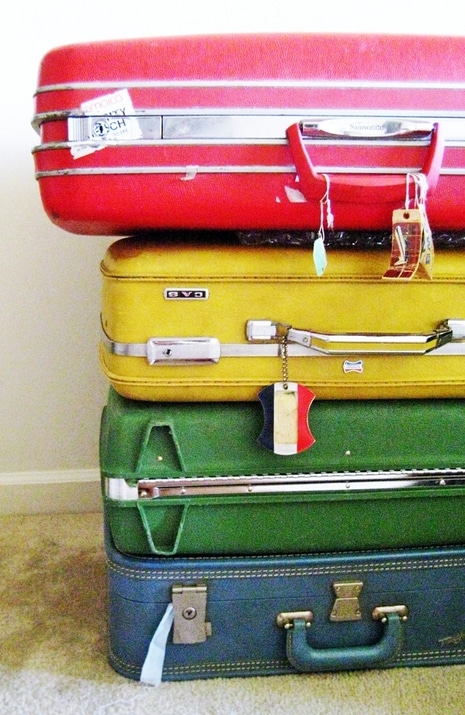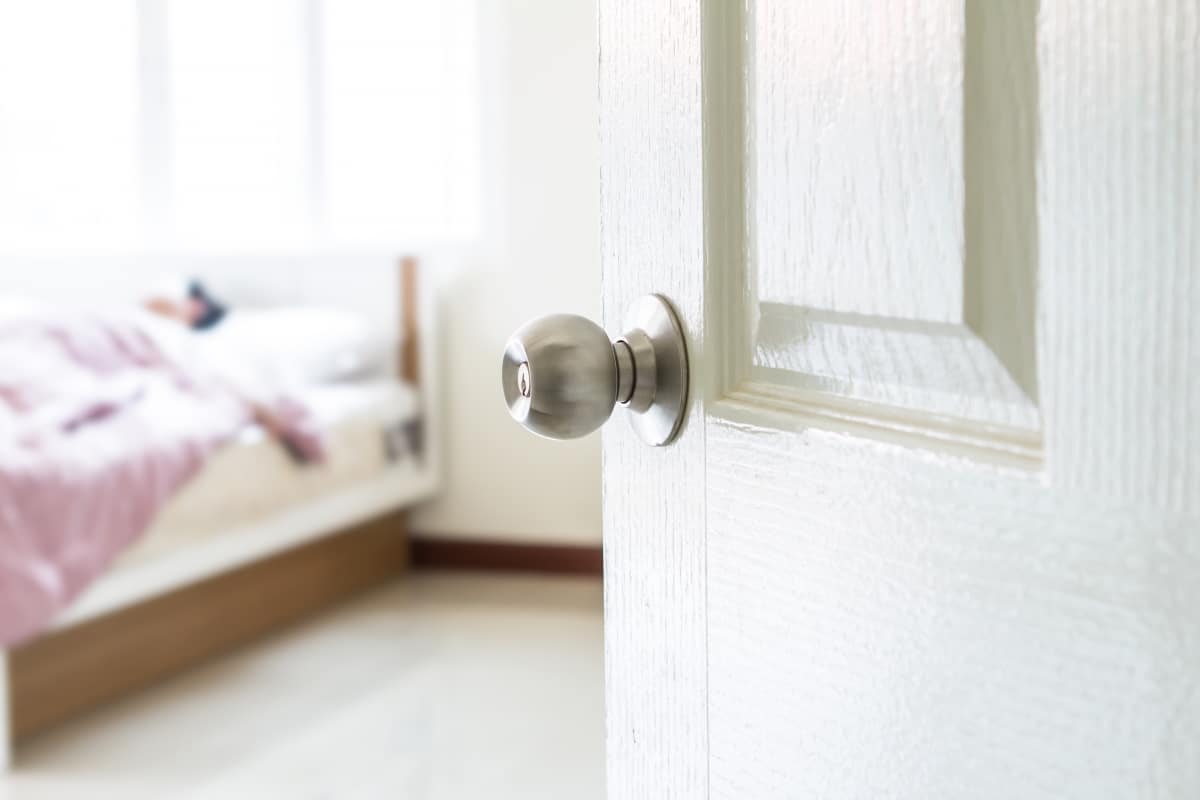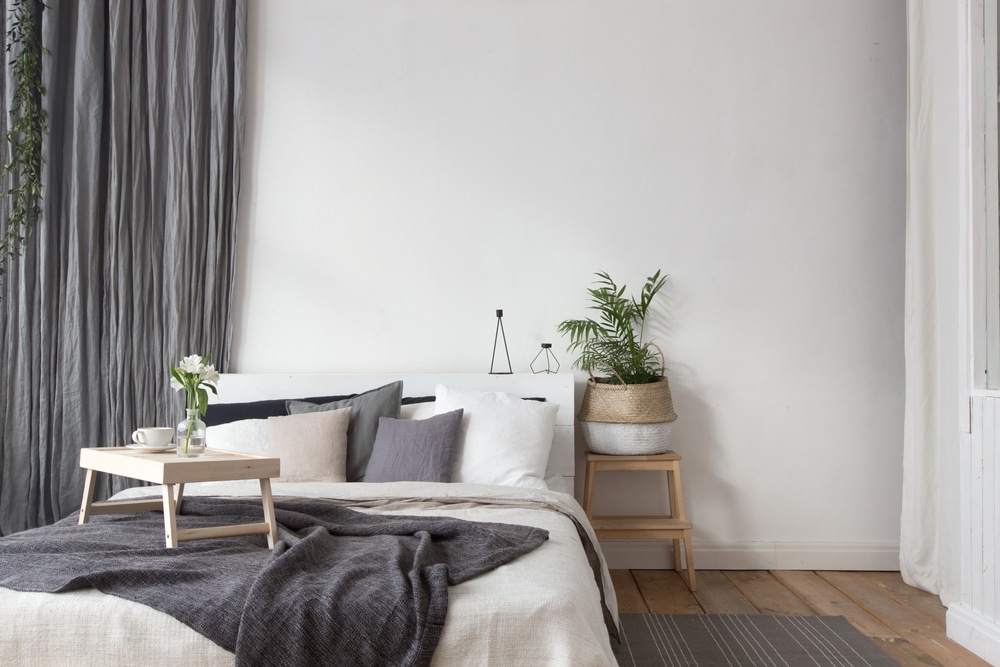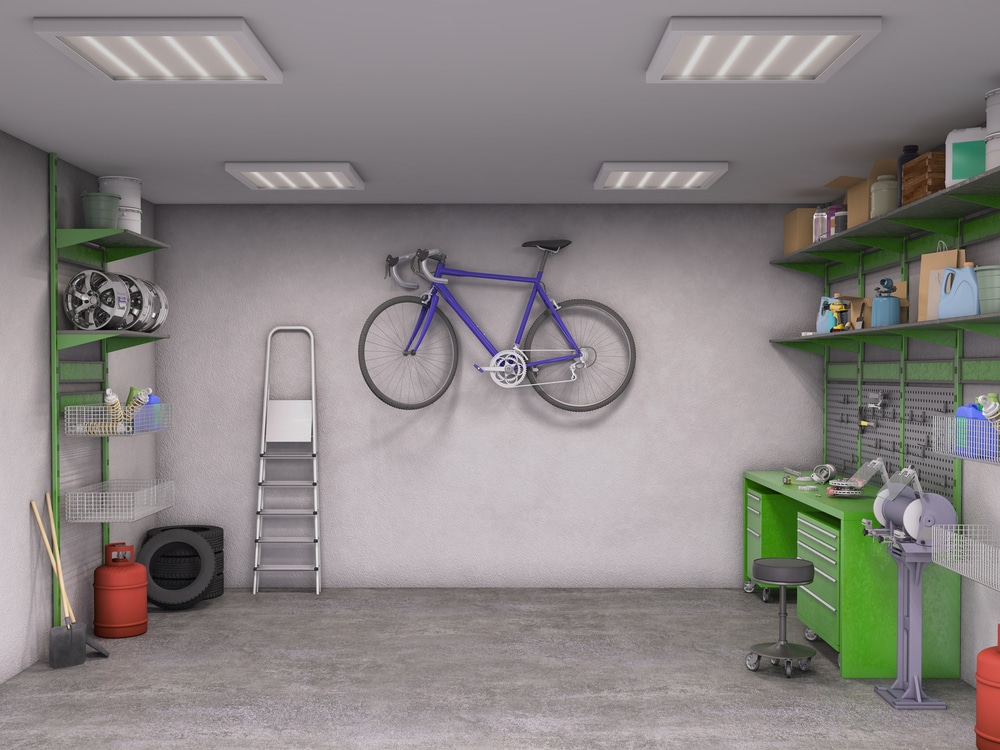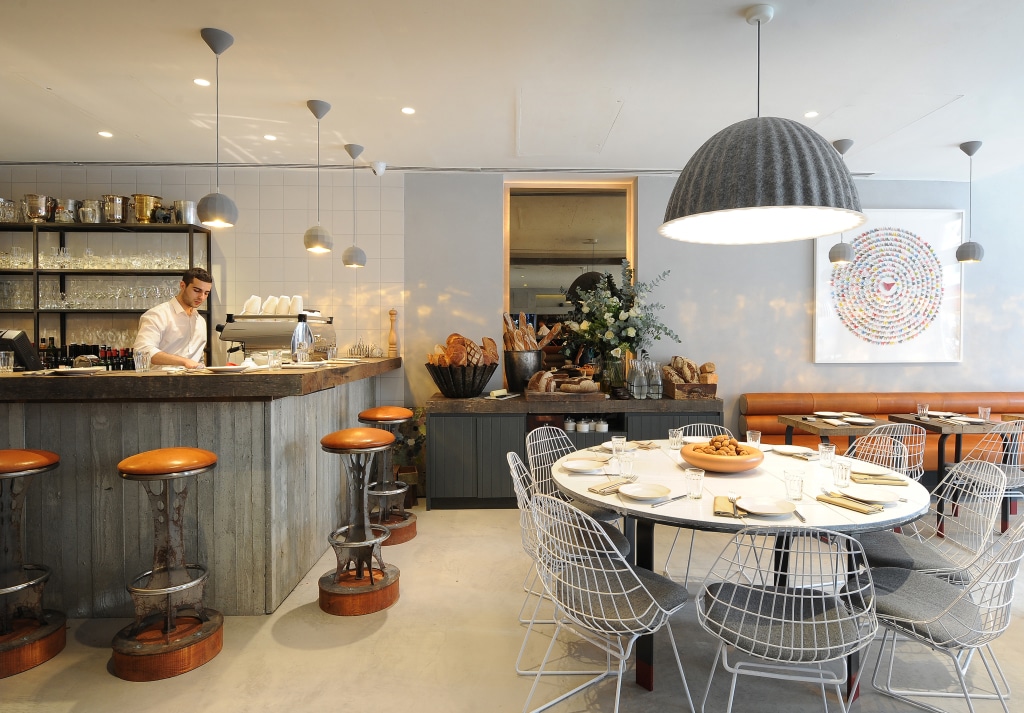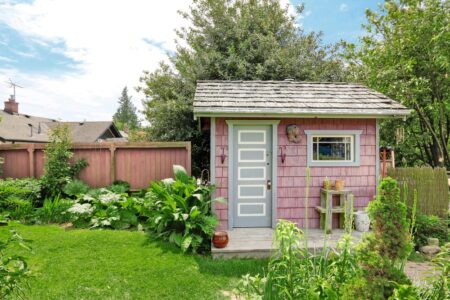Updated 12th July 2024
For many people, the summer months mean one thing: summer jobs. Whether it’s to gather some much-needed holiday money, to fill a gap between other work, or just to do something different during this most sunny of seasons. Many students will pick up extra work during the term break, too.
Thankfully, there are plenty of summer jobs available around the UK, from the relatively easy to the more challenging, but all will get you out of the office, away from the shops and into a new adventure. So here’s our roundup of ten ways you can gain employment this summer.
Earn Money Fruit Picking

Over the last few years, there’s been a shortage of willing fruit pickers offering their services to British farms. As a result there are usually plenty of fruit-picking jobs available throughout the summer. If back-breaking toil isn’t your thing then you could try your hand at the checking of the fruit, the weighing, packaging, labelling and even sales in the farm shop.
What you’ll be picking will depend of course on the farm but also on the month. For example, strawberries and gooseberries are often picked from early June to mid July, plums and apples are picked in late August, and apples and pears are picked in September.
Your best bet would be to travel to your local farm and speak to the owners directly. Also look out for adverts in local shop windows and village halls. Find a farmers’ market near you and ask about any jobs going.
Picking Jobs is a useful website where you can put in a search for fruit picking in Europe and see what’s available. Anywork Anywhere has a similar set-up and can be used to search for all kinds of other seasonal jobs both here and abroad. When you see a job that interests you, email the employer directly giving a few basic details about yourself and the dates you can do.
You’ll be working outside so wear old casual clothes that you don’t mind getting dirty. You may be standing in fields for hours on end so comfortable shoes are a must. You’ll also need a hat and sun cream so you don’t get burnt. Insect repellent is a good idea, and make sure you drink plenty of water.
Earnings are often cash in hand and if you earn enough you will be expected to take care of all your own taxes. It’s unlikely you’ll make a lot of money, so you may not exceed your personal income allowance. For this year, the personal allowance is £12,750.
You’ll typically be paid minimum wage:
- £11.44 per hour for workers aged over 21
- A rate of £8.60 per hour for workers aged 18–20 inclusive
- £6.40 per hour for all workers under the age of 18 who are no longer of compulsory school age
Depending on the farm you’re working for, you might be paid hourly or daily, but sometimes you’re paid according to the amount you pick (e.g. you get x amount per kg or pound). This system is called ‘piecework’ and it’s fruitful (sorry) for those who work particularly hard.
Take Up Gardening

If you’re green-fingered then gardening for cash is an ideal way to make some extra money. Lots of people start thinking about the state of their garden in the weeks leading up to summer so it’s the ideal time to pounce on their insecurities!
Offer your family, friends, colleagues and neighbours your services as an expert lawn mower, weed eradicator and plant potter and you’ll be a renowned small-time gardener in no time at all.
Start attracting business by handing out cards and flyers (you can get free business cards printed from Banana Print) and by knocking on doors. Once you’re up and running, word of mouth should spread and work should roll in on a regular basis.
Ideally, you’ll need your own lawnmower, garden tools and transportation to get from place to place.
In terms of tools, get yourself a sharp pair of secateurs, a pair of tough gloves and a long, thin trowel. A spade, fork, and rake are also versatile and useful. There are plenty of different tools out there to help make your job in the garden a bit easier. Here are a couple of useful websites:
Don’t think too big to begin with – offer basic services that people generally don’t have time to do themselves for a reasonable price. Professional gardening companies charge around £15 for simple tasks, so long as you can beat their quotes you should have plenty of business.
Work a Festival

Are you interested in getting FREE festival tickets? Fun in the sun at Reading Festival might seem a world away at the moment, but if you want to get some free festival tickets, you need to start planning now. Being a charity volunteer will get you into the festival for nothing and you’ll only have to work a few shifts – then you can enjoy the music with everyone else!
You’ll need to join an events recruitment company. Here are a few we tracked down for you:
- Festaff supplies casual staff for over a dozen music festivals in the UK, including Bestival, Creamfields, Wickerman, Camp Bestival, Isle of Wight Festival, Sonispshere, Rockness and Beachdown. Some of these are currently recruiting, so if you’re interested, fill out their application for summer positions.
- Delaware North Companies Ltd (DNC) runs a food and catering service at both Wembley Stadium and Emirates Stadium. They provide full training for all the roles, and job vacancies range from bar staff to sous chefs. See the Hospitality Staff website for full details on DNC job profiles and how to apply.
- Jam Staffing employs people for events all over the UK. They’re looking for waiters/waitresses, security staff, models and much more. You can apply through their website.
- For something a bit different, how about mobile catering with MJR Tom? This involves walking around events at stadiums, football clubs and racecourses. You will then sell whatever it is you’re told to.
Air BnB Your House
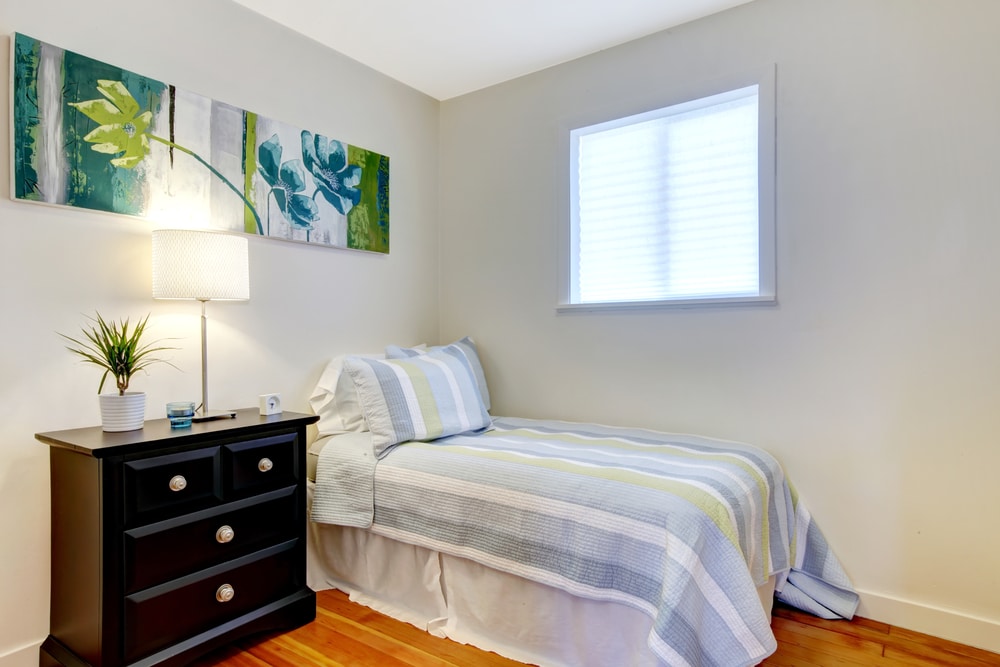
Your part of the world could very well attract people to your very own B&B, run from your house. Think about what makes it special and what would encourage people to visit. Do you live in a picturesque village by the seaside, or in a busy and bustling city? How close are you to transport links and tourist attractions? Could you offer weekday stays for commuting professionals? Is your area the sort of place that people will want (or need) to come to and stay in?
Having a big house with lots of rooms is only half the battle won. Think about your unique selling point.
You might also consider doing a survey to find out what people want from a B&B. Send it to friends, family and colleagues to get a good range of responses. Use that to inform your plans. Once you get going, ask guests for feedback. Also ask them to review your place on TripAdvisor and Google – both of those are useful ways to get business in for free.
If you want a more regular income across the year, and a good spare room, consider the Rent a Room scheme which allows homeowners to earn £7500 tax free as they take in a lodger.
Try Housesitting and Petsitting

The summer is the perfect time to house sit – there are many more people going on holiday and if you can’t afford to go away this year it’s a great way to visit a different part of the country without forking out your hard-earned cash.
Housesitting involves looking after someone’s home while they’re away. You’ll be asked to carry out the daily duties that would normally be done if the owners were present but the rest of the time is yours to relax. The work may also involve looking after an animal, so you need to make sure you don’t mind cleaning up the odd bit of dog poop here and there.
The easiest way to get work is to sign up for an agency. That way you also have the added security of insurance, which might be too much of a complication and expense otherwise. With an agency such as Trustedhousesitters you can expect to earn just less than two hours’ pay per day at the minimum wage. You’ll also be given an allowance for food and reimbursed for any travel costs. For pet-focused housesitting, the national agency Animal Aunts looks for people who can look after pets in all areas.
If you’d prefer to do it off your own back, advertise yourself in the local paper or on sites like NextDoor or Gumtree, making sure you include the fact that you can provide personal references if required.
Depending on the arrangement you have with the homeowner, you may have to commit to staying in the house for a certain proportion of the day. This is an opportunity to catch up on reading, writing, knitting or even a spot of paperwork. Most pet sitting services guarantee a minimum of 20 hours a day on the property. Of course, some of that is taken up with you sleeping! It gives you a couple of hours here and there to nip out for groceries or see a local sight. Pets usually shouldn’t be left more than a couple of hours.
Housesitting is unlikely to make you vast sums of money. Long-term house minders can earn about £30 a day, plus food and travel allowances and short-term house sitters can earn between £8 and £10 an hour. If you’re very savvy and work locally, you might be able to bundle together your longer term sitting with popping to a neighbour for their twice-a-day cat check-in.
However, you can make a lot more money if you can hire out your own house while you stay at someone else’s.
If you live in a popular city or a very attractive part of the country, why not rent out your home at the same time? Simply put it up for rent on Gumtree, Air BnB or through a local lettings agent that specialises in short holiday lets. Short-term lets are usually much more lucrative than long-term ones so you could find yourself making £100s while you’re away. To find out more about renting your house, or part of it, see our article on renting a room out.
Have Fun as a Nanny or Babysitter

Are you great with kids? Looking after someone else’s offspring every now and then can be a fun summer money maker. A spot of good weather (hopefully) will mean that you can take the children for fun days out and not be stuck indoors too often.
If you need some inspiration when it comes to entertaining children, Day Out With The Kids is a brilliant website full of places to visit for both indoor and outdoor activities in your region.
Childminding is different from babysitting or nannying. If you are babysitting for a few hours, you don’t need any qualifications. Nannies who work from their client’s home (and only look after the same family) don’t, either. But a childminder needs to register with Ofstead if they’re working from their own home or looking after children under the age of 8. Regardless of which you do, it would be good to take a child-specific first aid course.
You could charge anything around £10 an hour. The long summer holidays can be a real pain for working parents so there should be plenty of work. Whilst looking after children, be prepared for every eventuality. Keep phone numbers for parents and emergency contacts if for some reason you can’t get hold of them. Ask about allergies, medication or anything else you might need to know.
Want to make it make it a more regular gig? Professional childminding and babysitting is a different story. If you’d like to look after the children of strangers on a regular basis, you’ll need to be a registered childminder and have the proper checks to be able to work without fear of a lawsuit.
You can register with agency websites such as Sitters and Childcare.co.uk where you can advertise as a babysitter for free. The agency then makes all the arrangements for you. Also, drop a note through your neighbours’ doors to let them know you’re available to look after their children. You could even send out a group email to friends or work colleagues informing them of your new babysitting venture. Make sure you include a price list to establish the fact that it isn’t a free service from the start.
Having a DBS check (formerly CRB) will make it easier for you to get work. If you don’t have one, you need to be willing to get one when an agency hires you. You can’t apply for it yourself, so you may have to wait to be offered conditional employment then the agency can apply on your behalf.
Written references from people for whom you have already worked with make a big difference. However, even if you haven’t given babysitting a go before you can get character references from a teacher, your bank manager or another professional who knows you well.
If you do find that you’re struggling to get work, initially keeping your rates down to a minimum will do your reputation a lot of good – then you can always increase your fee later on once you’ve established some regular clients. Don’t go below minimum wage, though!
Be a Dog Walker

If you’re fit, active and enjoy spending time with animals then walking people’s dogs can be a really enjoyable and easy way to make some quick cash.
You can find your first customers just by asking around. Start by asking neighbours and others you know if they require your services. If your workload seems a little feeble, you could try advertising with a poster or notice at your local veterinary clinic, pet shops and at rescue centres, if they’ll let you.
After that, if you’re good and reliable, you’ll get publicity through word of mouth. Many dog walkers get clients when they meet them in the park.
You can also join a local dog-walking agency such as PetPals or register yourself as a dog-walking company at NarpsUK. Narps members can access discounted rates for insurance and it can also help you find more work through its pet owner postcode search facility. You’ll earn less per hour but the work would be more regular. Just put ‘dog walking’ into your search engine with your local area and see what comes up. There are lots of little, local agencies all over the country.
The biggest expense will be insurance. Pet Business Insurance offers a number of packages including:
- Public liability – if the dog runs out into the road and causes a pile up, or bites someone
- Care, custody and control – looks after the pet itself if it gets injured while under your care
- Loss of key – if you lose your employer’s keys they’ll pay to change the locks
You’ll also need a ready supply of pooper-scoopers and bags. Perhaps some doggy toys, too, but owners will usually supply their own. Make sure you check with owners before feeding their dog any treats – and stick to those specifically made for dogs, no human food.
Sell Your Photos

If you’re a dab hand with a camera, try selling your summer holiday snaps to photo agencies and libraries. Each time one of your photos is sold you can earn a commission. Most sites will ask for a selection of photos to test the quality and there’s a chance they’ll be rejected. But if you don’t try you’ll never know! Also, there are lots of photo sites to choose from and there’s nothing to stop you from signing up with all of them.
Even if you’re not going away, why not get out and about with your camera and start taking some pictures? For an idea of what stock libraries are looking for visit the websites themselves. They usually need images of people’s hometown, street, groups of people, and people in business and work shots.
Sites such as Adobe often have a travel section for professional-quality photographs of interesting things and places. Others such as 123RF operate in a similar way.
You can also try contacting smaller travel magazines – send an email to their pictures editor and find out their rates.
If you want to submit a photo to sell, it has to be an RGB JPEG saved at a high setting (such as Photoshop level 10 setting or 48 MB in size). They must not be compressed file sizes. Usually the higher the image resolution, the more you’ll be paid, so keep files large.
Do be careful about the pictures you submit – such as pictures of identifiable houses or models. Any person who’s in the photo will, in most cases, need a release form. This is signed by the model or house owner to cite that their permission has been given. This is because you will profit from their personal belongings. Also, some properties and logos are trademarked and therefore will not be accepted.
What you charge is completely up to you, but it’s advisable to only charge what you think people can afford.
Become a Lifeguard

If you’re a strong swimmer why not become a lifeguard for the perfect summer job? It’s a great way to meet people and although it’s a serious job (your role is to look after and possibly save someone’s life) it can be lots of fun too.
There are two types of lifeguard:
- Swimming pool lifeguards – employed by a leisure centre, private club, local authority, hotel or holiday centre
- Beach lifeguards – employed by the Royal National Lifeboat Institution (RNLI)
Once you’re qualified try sites like Leisurejobs, Gapyear.com and Gumtree to find work. Also, contact your local pool and ask about vacancies.
To be a pool lifeguard you’ll need one of the following qualifications:
- The National Pool Lifeguard Qualification (NPLQ)
- The National Aquatic Rescue Standard (NaRS): Pool Lifeguard
- NPLQ and NaRS courses are based at local swimming pools or leisure centres. They are run through approved centres, such as colleges and swimming clubs.
To be a beach lifeguard you’ll need one of the following qualifications:
- RLSS National Beach Lifeguard Qualification
- National Aquatic Rescue Standard (NaRS): Beach Lifeguard, run by the Surf Life Saving Association of Great Britain (SLSA GB)
These qualifications can be gained by training with a commercial training organisation like Harlyn Surf School in Cornwal. Or, you can join a local RLSS Lifeguard club or SLSA GB life-saving club as a volunteer.
You can get information on all lifeguard courses in your area through the Learndirect careers advice website. Expect to pay between £100 and £150, although if you receive benefits you may be entitled to discounts. Because you’ll be working with or around children, you’ll need to undergo a DBS (Disclosure and Barring Service check).
Remote Admin Work
If you want to earn some extra cash on the side in the summer without going anywhere special, consider finding remote admin work. You can pick up jobs on sites like Fiverr, or ask around friends and family. If you’re a dab hand with spreadsheets and Word shortcuts, there are plenty of people who would like some extra help with the boring-but-necessary business tasks they have.
Target other freelancers or small businesses. They are the ones most likely to need extra assistance as a remote PA, admin worker, or even stuffing envelopes! The work is often flexible and can be charged by the hour – try to get at least £15 an hour for most tasks. Target local events companies too, as they may have lots of upcoming event that require bag stuffers and leafleters.
The post Top Ten Summer Jobs 2023 Edition appeared first on MoneyMagpie.
Labels: News










